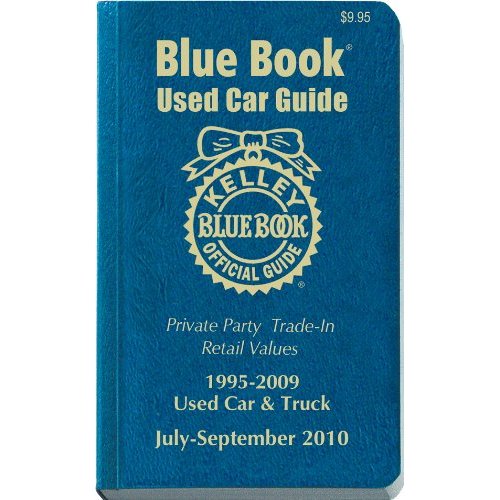Unlocking Used Car Value Secrets: Your Guide to Smart Buying
Ever dreamt of cruising in a sweet ride without emptying your wallet? The used car market holds a treasure trove of possibilities, but it's a jungle out there. How do you know you're not getting ripped off? That's where understanding used car valuations comes in, and a name like Kelley Blue Book (KBB) often leads the charge.
Imagine this: you're eyeing a shiny used SUV. The seller throws out a price. Is it fair? Too high? Without a solid understanding of its market value, you're navigating blindfolded. KBB, a long-time player in vehicle valuation, offers a crucial tool for smart used car shopping. Their data helps determine a fair price range, giving you the power to negotiate confidently.
KBB's history dates back to 1918, starting as a small California dealership's used car price list. Over the decades, they've evolved into a trusted resource, using extensive market data to generate valuations. This information is invaluable for buyers and sellers, promoting transparency and fairness in the used car market.
However, KBB isn't the only game in town. Other reputable sources like Edmunds and NADA Guides also provide used car valuations. Comparing estimates from different sources gives you a well-rounded perspective and helps fine-tune your negotiation strategy. Keep in mind that these are estimates, not fixed prices. The actual transaction price can vary based on factors like condition, mileage, and location.
So, how do you actually use these resources? Simply input the year, make, model, trim level, mileage, and condition of the car you're interested in. The website will generate a price range, reflecting trade-in value, private party sale value, and dealer retail value. This gives you a realistic benchmark to gauge the seller's asking price.
One key aspect of using KBB effectively is understanding its limitations. While it provides a helpful starting point, it's not an absolute guarantee of a vehicle's worth. Factors like specific features, accident history, and even local market trends can impact the actual selling price.
Benefit 1: Confident Negotiations: Knowing the KBB value empowers you to walk into negotiations armed with data, making it easier to stand firm against inflated prices. Example: If the seller asks $15,000 for a car with a KBB value of $13,000, you have solid grounds to negotiate a lower price.
Benefit 2: Avoid Overpaying: KBB values provide a realistic price range, preventing you from impulsively overspending on a used car. Example: You find a car you love, but the KBB value suggests it's overpriced. This knowledge saves you from a potentially costly mistake.
Benefit 3: Informed Decisions: Using KBB and comparing it with other sources provides a comprehensive understanding of a car's market value, helping you make a more informed buying decision. Example: By researching various valuation sources, you gain a holistic perspective on a car's worth, considering different market factors.
Step-by-step Guide to Using KBB: 1. Visit KBB.com or a similar website. 2. Enter the vehicle's details (year, make, model, etc.). 3. Review the provided price ranges. 4. Compare these values with other sources like Edmunds and NADA. 5. Use this information as a foundation for your negotiations.
Advantages and Disadvantages of Using KBB
| Advantages | Disadvantages |
|---|---|
| Provides a quick and easy valuation estimate | Doesn't account for specific vehicle conditions or features |
| Offers a starting point for negotiations | Can be influenced by market fluctuations |
Frequently Asked Questions:
1. Is KBB the only source for used car values? No, other reputable sources include Edmunds and NADA Guides.
2. Is the KBB value the exact price I should pay? No, it's an estimate. The actual price can vary based on various factors.
3. How accurate is KBB? KBB uses extensive market data, making it a generally reliable resource, but it's not infallible.
4. Should I trust the seller's price over KBB? No, always do your own research and compare prices from multiple sources.
5. What other factors should I consider when buying a used car? Condition, mileage, accident history, and maintenance records are crucial factors.
6. How can I negotiate effectively using KBB? Use the KBB value as a leverage point, highlighting discrepancies between the asking price and the market value.
7. What if the seller refuses to negotiate based on KBB? Be prepared to walk away if the seller isn't willing to meet you at a reasonable price.
8. Is a pre-purchase inspection necessary even if the KBB value seems fair? Absolutely. A mechanical inspection can reveal hidden problems not reflected in the KBB value.
Tips and Tricks: Check multiple valuation sources. Factor in the car's condition. Research local market trends. Be prepared to walk away from a bad deal.
In conclusion, navigating the used car market can be daunting, but with the right tools and knowledge, you can steer clear of overpriced lemons and find your dream ride at a fair price. Utilizing resources like KBB provides a valuable starting point, giving you insight into a car's market value and empowering you to negotiate confidently. Remember that KBB is a tool, not a definitive answer. Combine it with thorough research, vehicle history checks, and pre-purchase inspections for a comprehensive approach. By being informed and proactive, you can unlock incredible value in the used car market and drive away with a smile, knowing you made a smart and savvy purchase.
Honda pilot boat towing guide
Avon nc real estate exploring homes on zillow
Unlocking the warmth of honied white your sherwin williams guide










